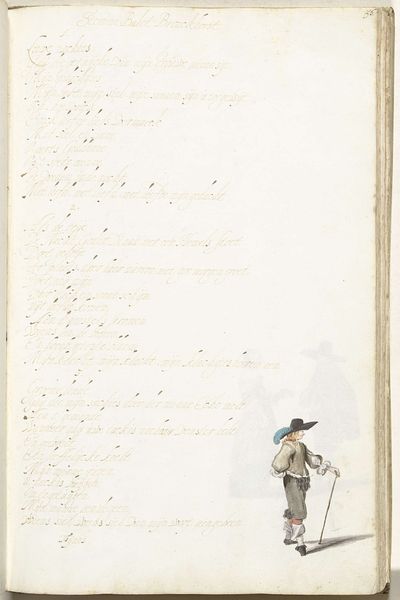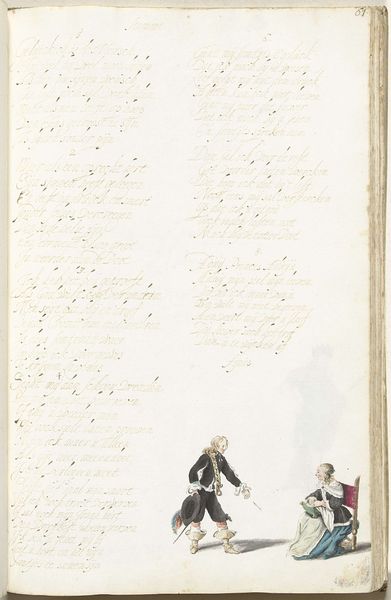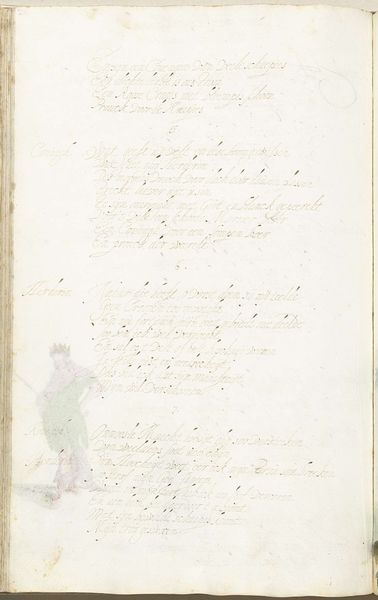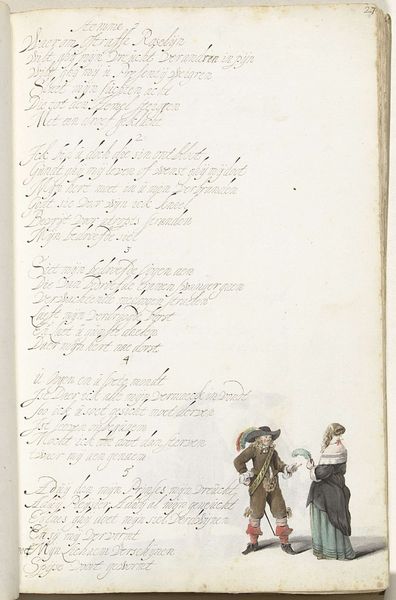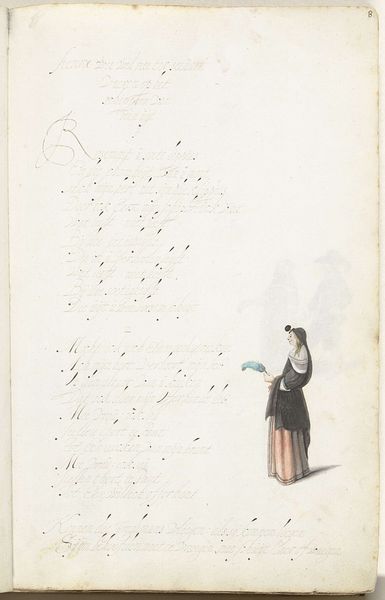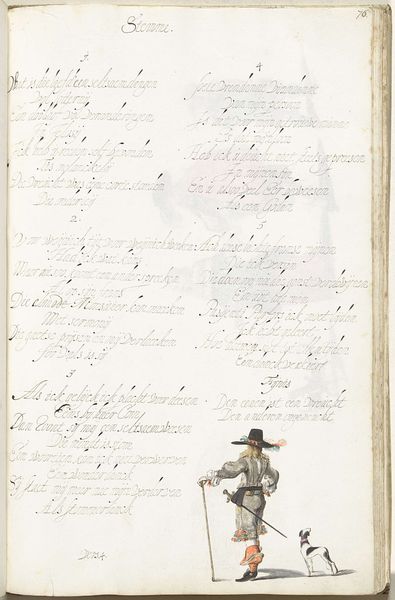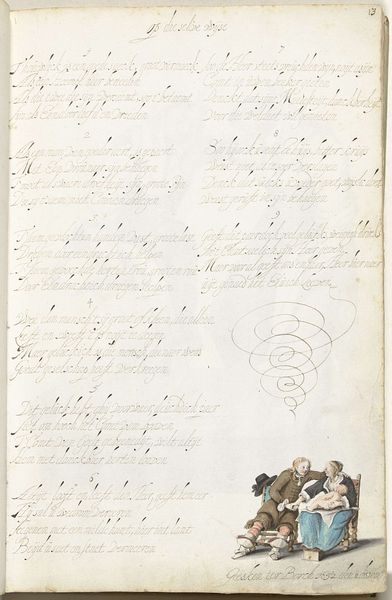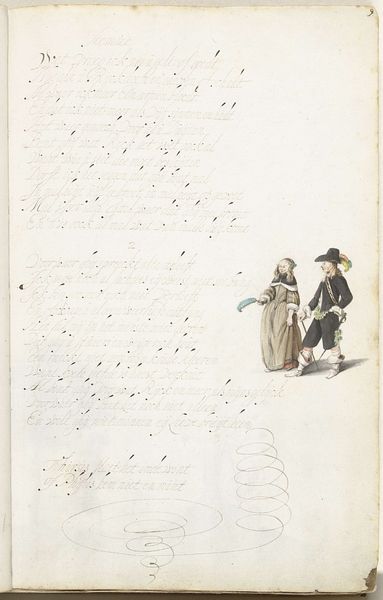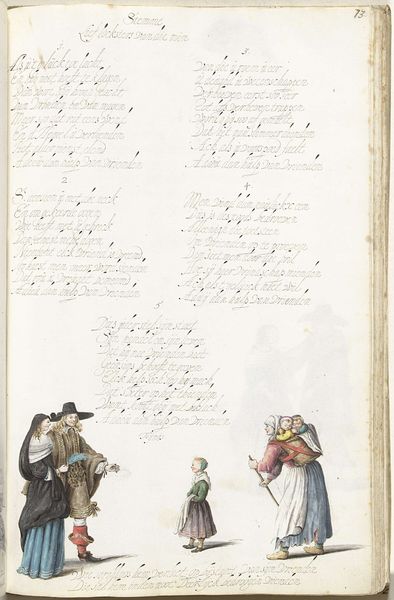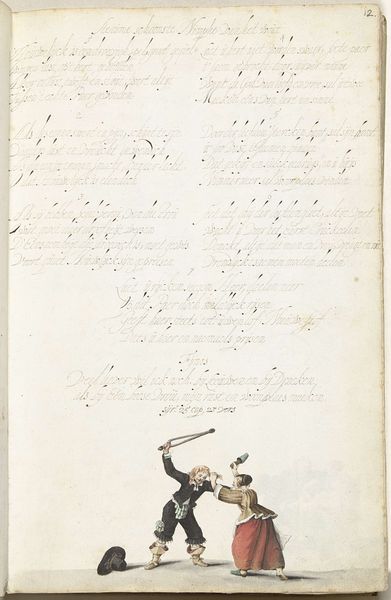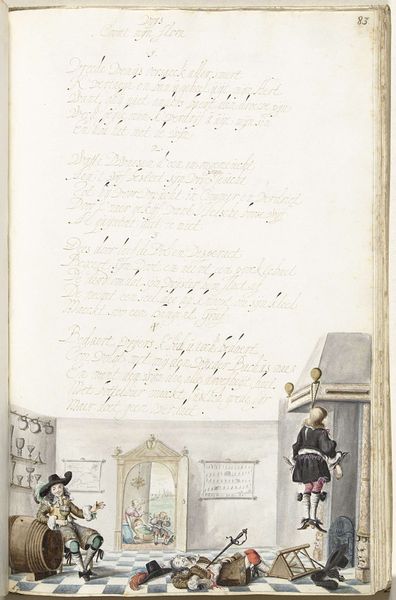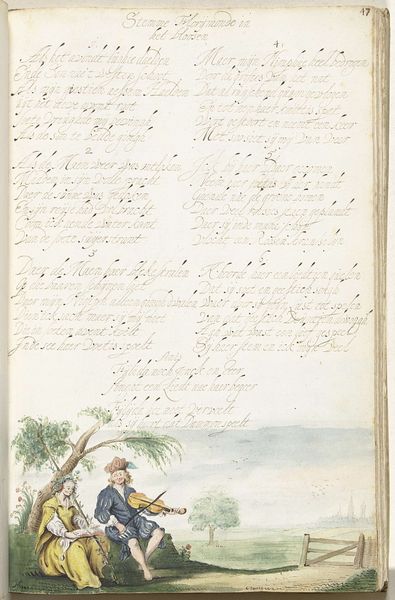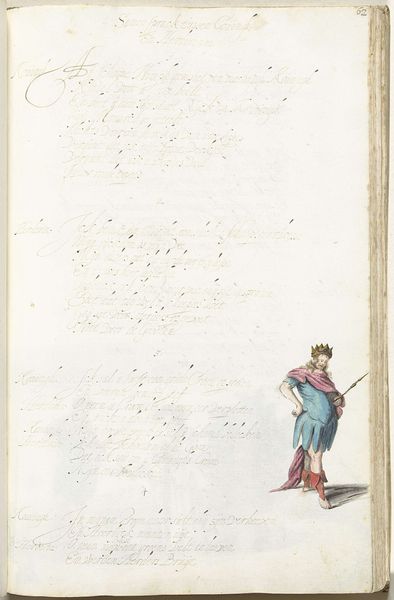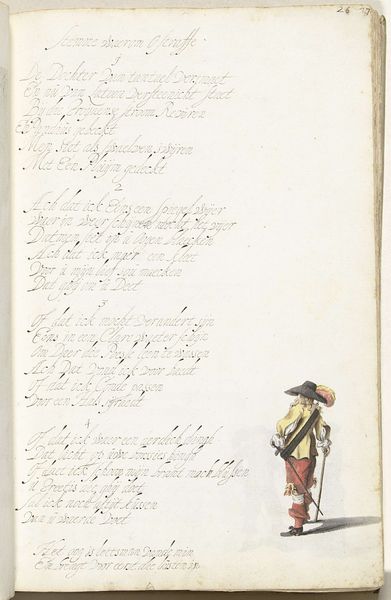
drawing, painting, paper, watercolor, pen
#
portrait
#
drawing
#
water colours
#
dutch-golden-age
#
painting
#
paper
#
watercolor
#
coloured pencil
#
pen
#
genre-painting
#
miniature
Dimensions: height 313 mm, width 204 mm
Copyright: Rijks Museum: Open Domain
Editor: Here we have Gesina ter Borch’s "Soldaat en dame, van achteren," dating from around 1654. It's a watercolor and pen drawing on paper, currently held at the Rijksmuseum. What strikes me is its miniature size within a page filled with what appears to be writing. How does that framing affect how we perceive the image? Curator: The positioning is key, isn't it? Ter Borch situates these figures within the very space of knowledge production. Consider the implications: these small figures, rendered in such delicate detail, are juxtaposed with dense text. The soldier and lady, seemingly caught in a moment of quiet interaction, are presented to us via this act of observation. Do you think that impacts their importance? Editor: Well, placing them within the text makes me wonder if they are a commentary on or perhaps an interruption of the text itself. Are they performing some narrative role beyond just being a genre scene? Curator: Exactly! Think about the social context of 17th-century Netherlands. Genre scenes like this offered glimpses into daily life but often served moralizing purposes or subtle social critiques. The placement on the page might amplify such messages, subtly placing societal concerns onto the "page" of lived experience. Editor: So, rather than a pure depiction of daily life, the image could be engaging with social issues in a coded manner? Is the domestic sphere here placed on the same level as politics or commerce? Curator: Precisely! The intimacy and privacy of the figures is juxtaposed against the public-facing, declarative nature of the written word, creating an unspoken dialogue. Editor: I never would have considered those social factors simply from looking at this charming miniature. Thanks for the insight! Curator: And thank you for recognizing that even seemingly simple images exist within complex cultural and institutional frameworks.
Comments
No comments
Be the first to comment and join the conversation on the ultimate creative platform.
